are Essential for Every Sewer?
Sewing is an art that has been practiced for centuries and has evolved into a popular hobby and profession. Whether you are a beginner or an experienced sewer, having the right tools is crucial in creating beautiful and professional-looking garments. Here are the essential sewing tools that every sewer should have in their sewing kit.
1. Sewing Machine
It goes without saying, but a sewing machine is the most important tool in a sewer’s arsenal. It makes the sewing process quicker, more precise, and efficient. With the advancement of technology, there are a variety of sewing machines available in the market, each with its own features and price. For beginners, a basic sewing machine with straight and zigzag stitches will suffice, while more experienced sewers can opt for machines with more advanced features like buttonhole and embroidery stitches.
2. Scissors
Scissors are a must-have tool for cutting fabric and thread. A good pair of scissors should be sharp, comfortable to hold, and have a pointed tip for precise cutting. It is advisable to have two types of scissors – one for cutting fabric and the other for cutting paper. This will ensure that your fabric scissors remain sharp and do not get damaged by cutting other materials.
3. Pins and Needles
Pins and needles are essential for keeping fabric in place while sewing. Pins come in various sizes and lengths, and you should choose the ones that are suitable for your project. Sewing needles, on the other hand, come in different sizes and have different eye sizes for different types of thread. It is important to have an assortment of needles to use when working with different types of fabric.
4. Seam Ripper
Mistakes are inevitable in sewing, and a seam ripper comes in handy when you need to remove stitches without damaging the fabric. It has a sharp pointed tip and a small blade that can easily cut through threads. Make sure to have a seam ripper in your sewing kit to correct any errors and make your sewing experience less frustrating.
5. Measuring Tools
Accurate measurements are crucial in sewing, and having the right tools will ensure that your garments fit well. A tape measure is a versatile tool that is used to measure the body and fabric. A sewing gauge is also useful for measuring seam allowances and hem allowances. A clear ruler with markings in inches and centimeters is also handy, especially for straight edges and marking fabric.
6. Iron and Ironing Board
Ironing plays an important role in sewing as it helps to create crisp and neat seams. Having an iron and an ironing board is necessary to achieve professional-looking garments. Make sure to have a pressing cloth to protect delicate fabrics from getting damaged by high heat.
7. Fabric Marking Tools
When creating patterns or making alterations, having a fabric marking tool is essential. You can choose from tailor’s chalk, washable markers, or fabric pens depending on your preference. These tools help in marking darts, notches, and other pattern markings on the fabric without leaving any residue.
Conclusion
Sewing is a skill that requires practice, patience, and the right tools. Investing in good-quality sewing tools may seem like a daunting task, but it will enhance your sewing experience and produce better results. Besides the tools mentioned above, there are many other sewing accessories that can make your sewing projects easier, such as a rotary cutter, thimble, and a sewing box to keep all your tools organized. So, make sure to have these essential sewing tools in your sewing kit and enjoy creating beautiful garments.
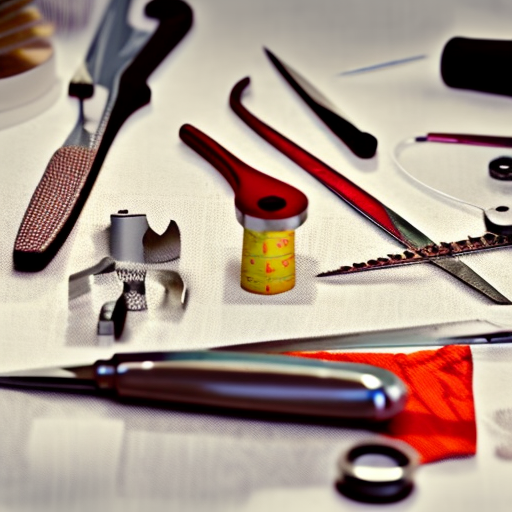
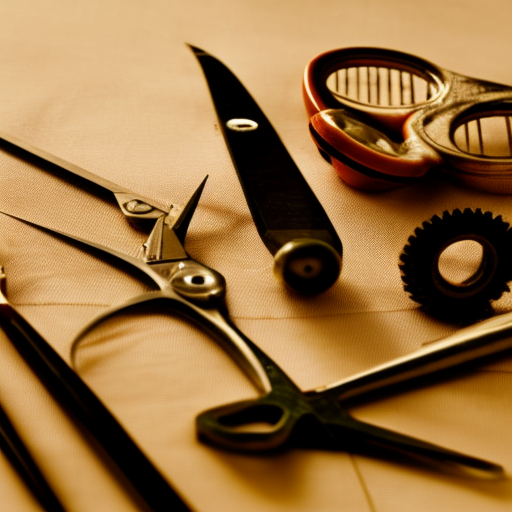
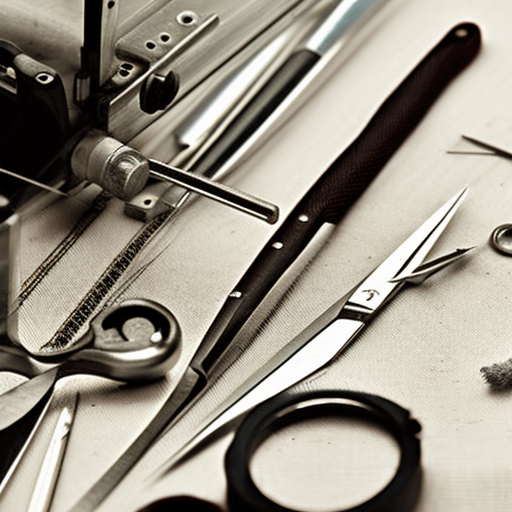
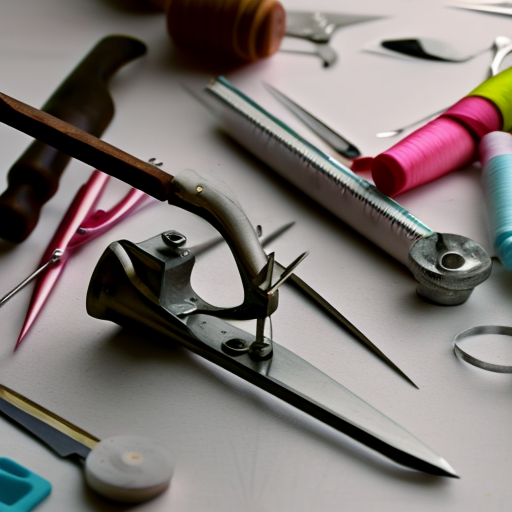
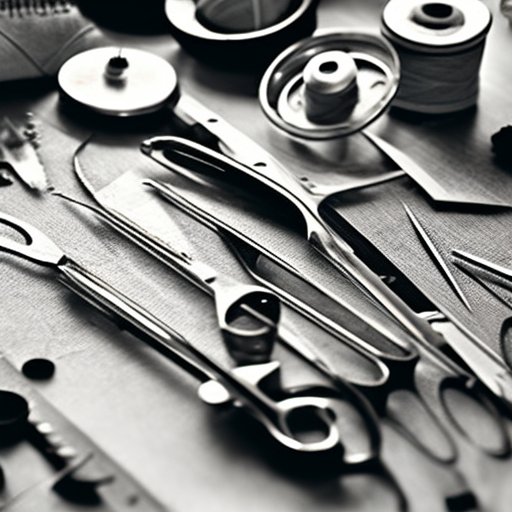
I can’t sew to save my life, but I want to learn! Where should I begin?
Julie Carson: A great starter set would be a needle, thread, fabric scissors, and pins!
John Smith: A great place to start learning is by watching instructional videos. That way you can familiarize yourself with the tools and techniques before you get started!